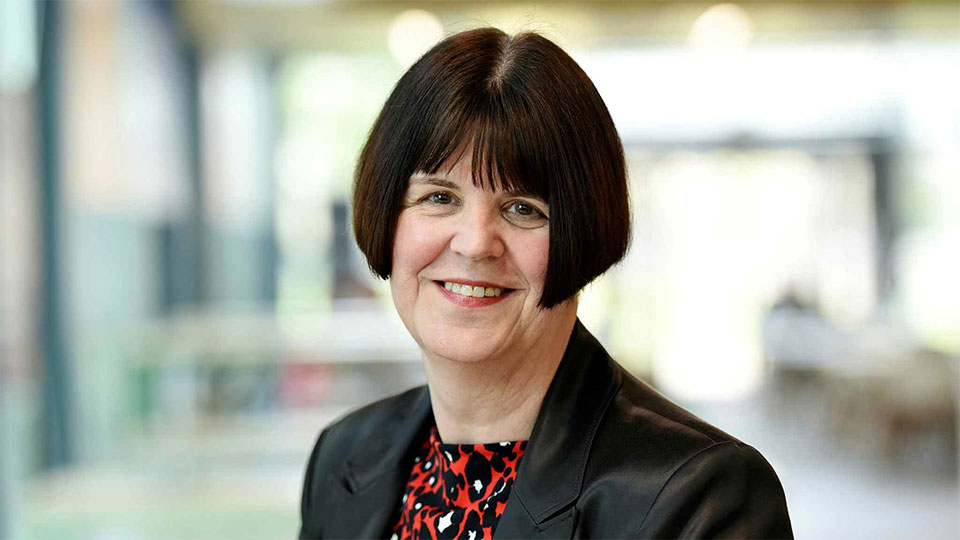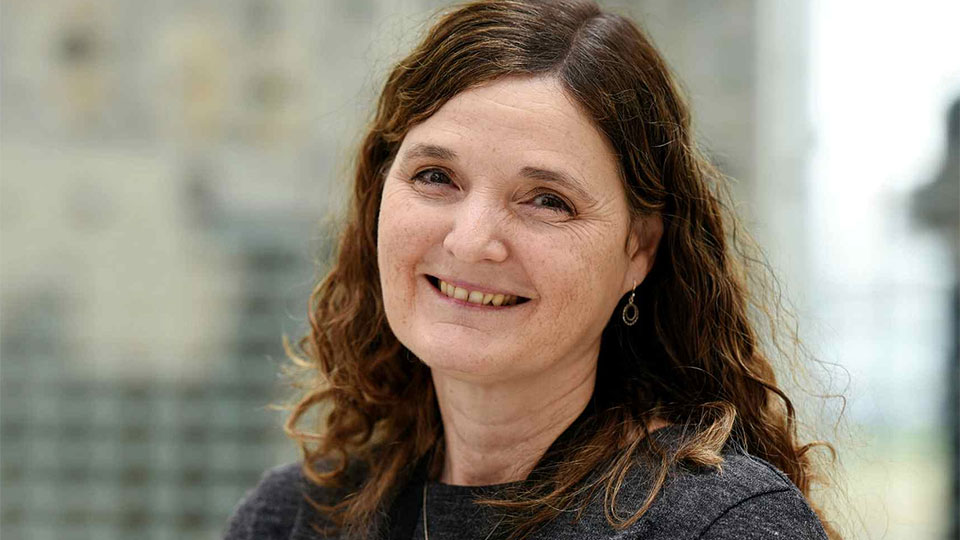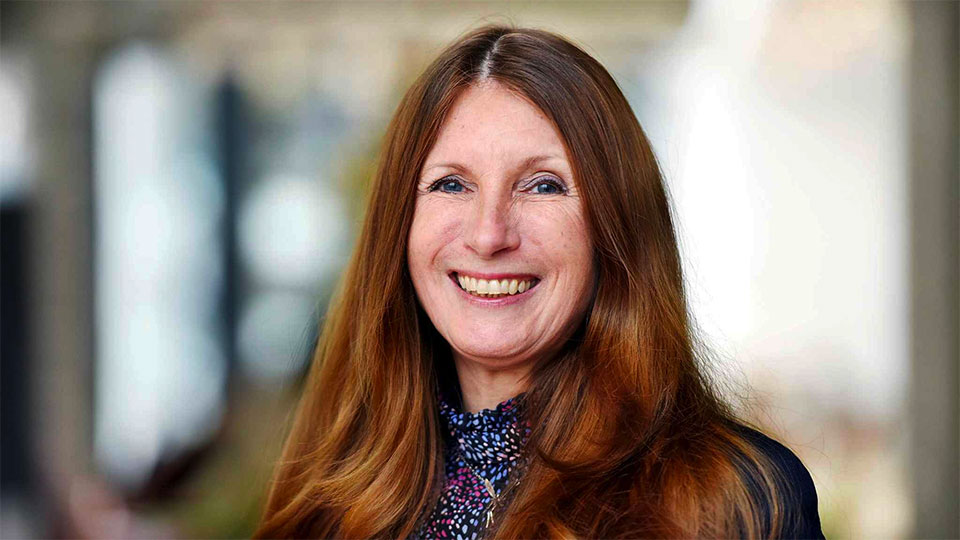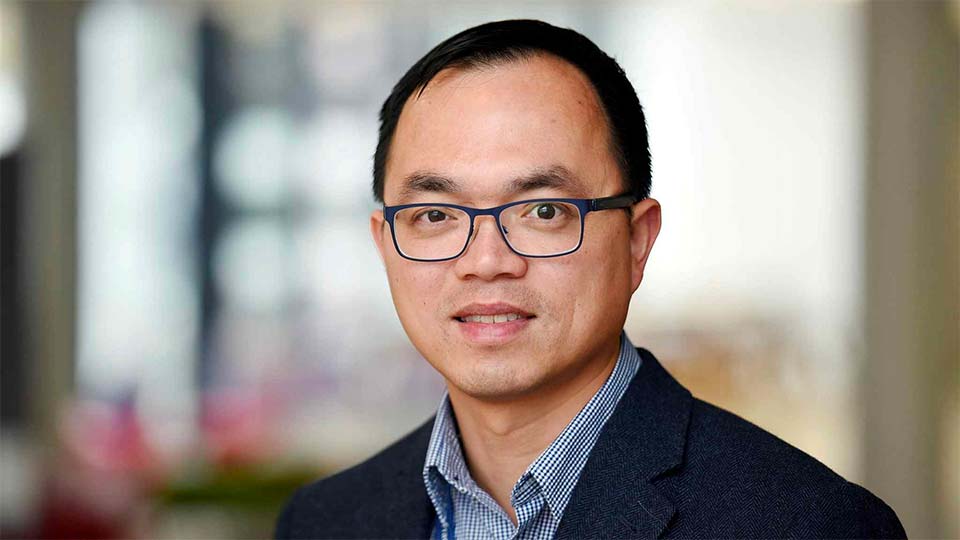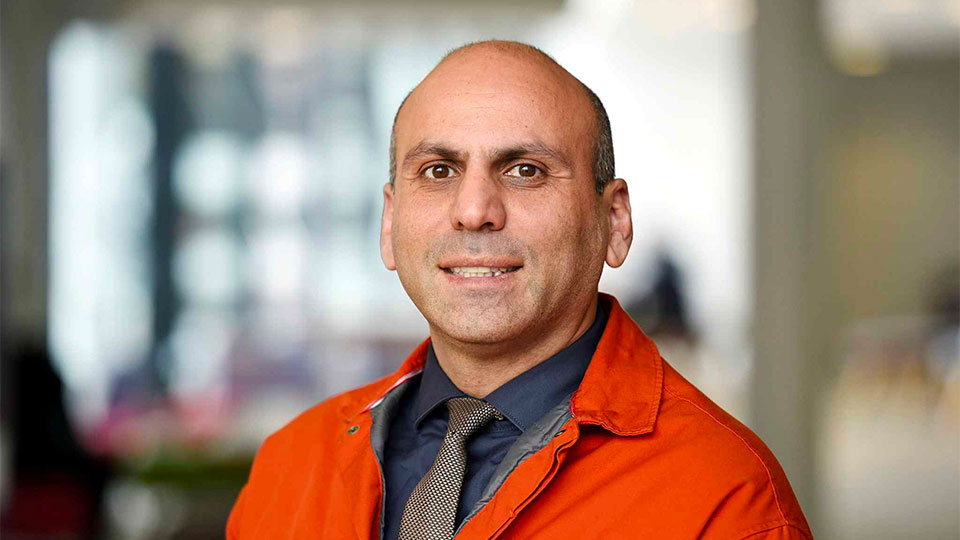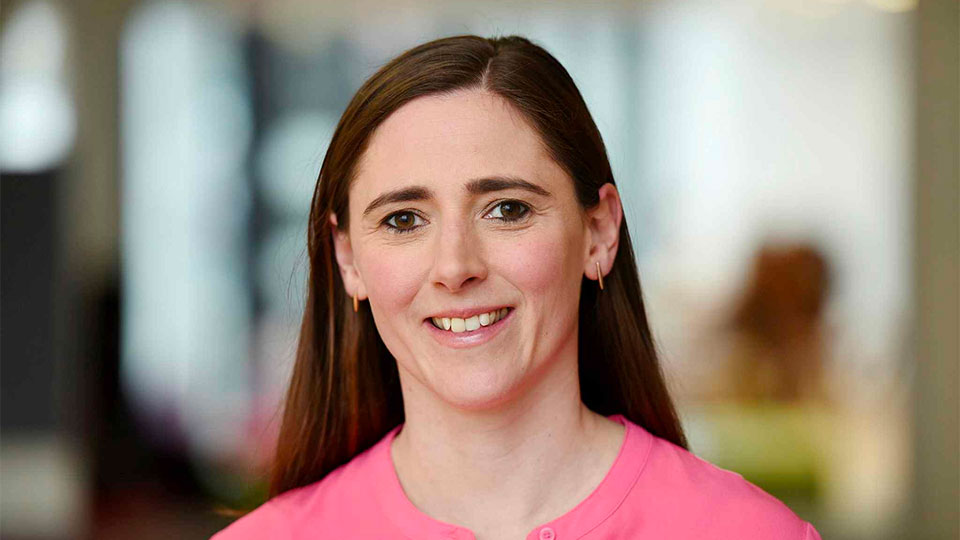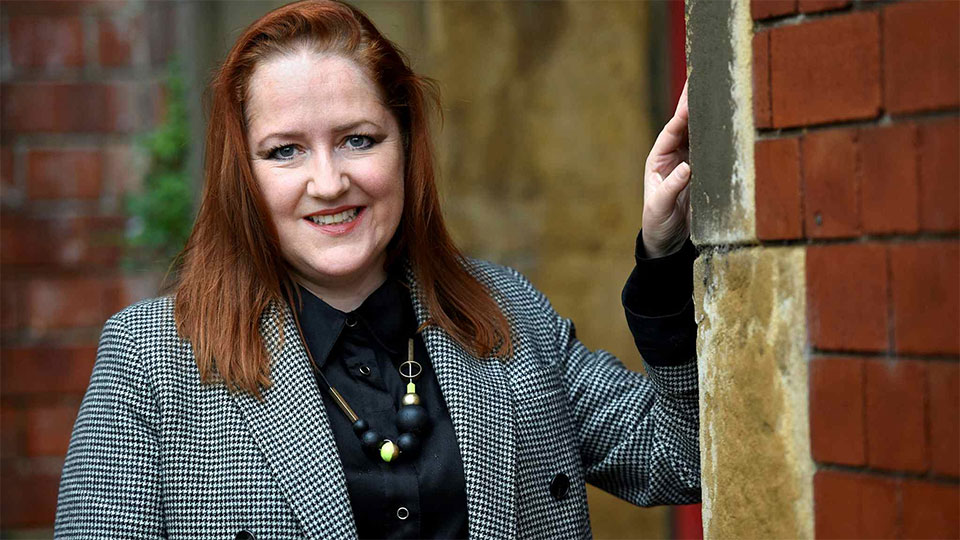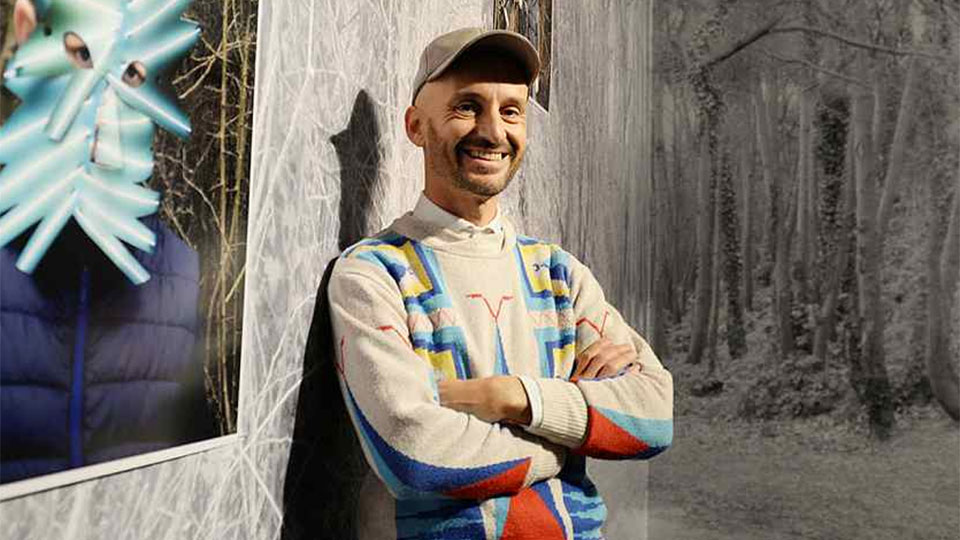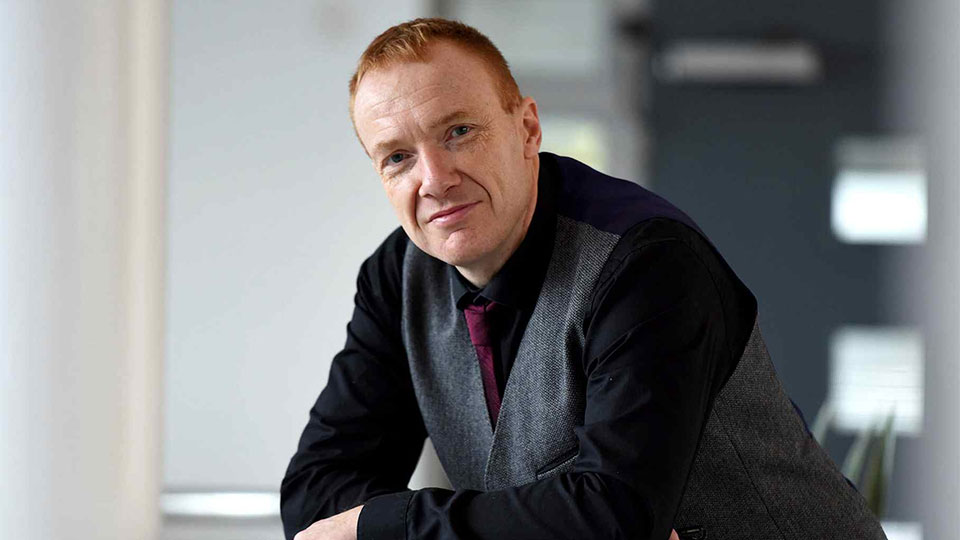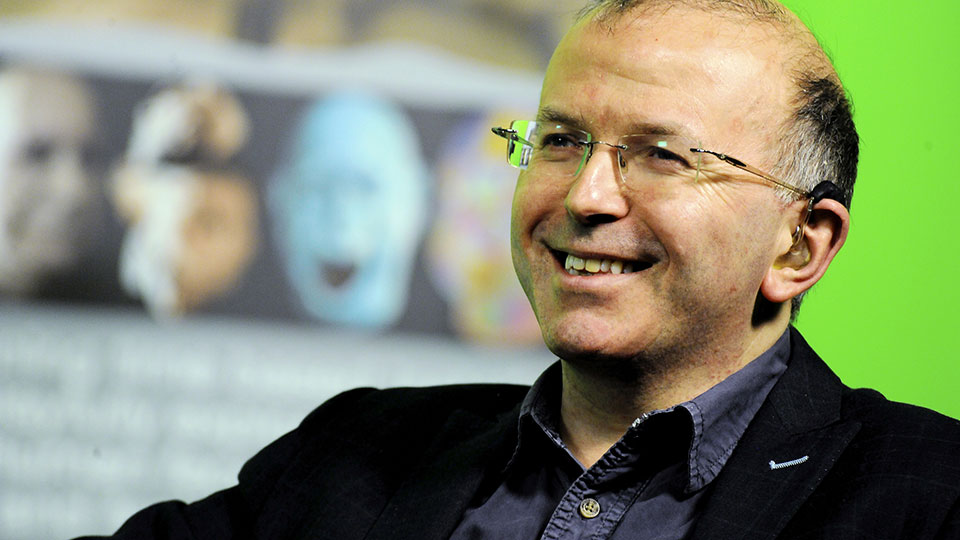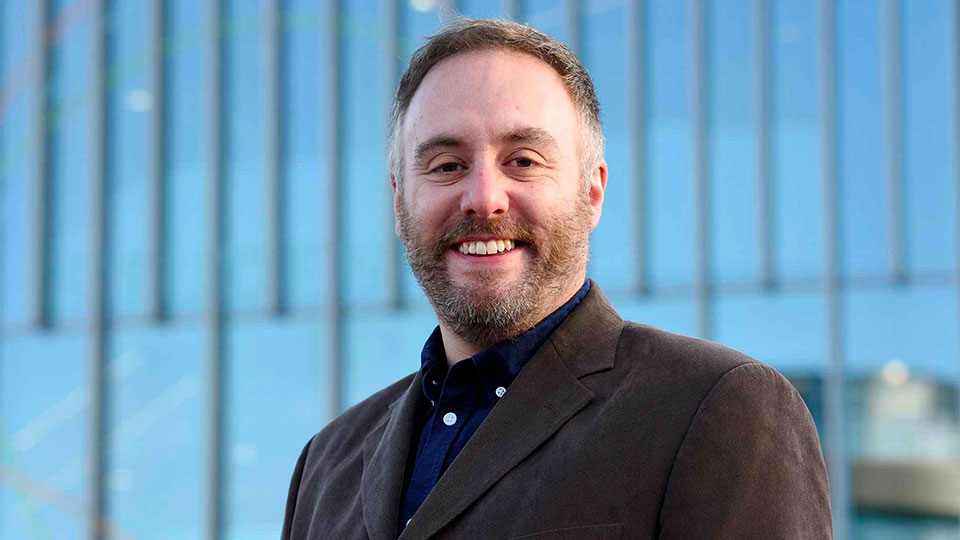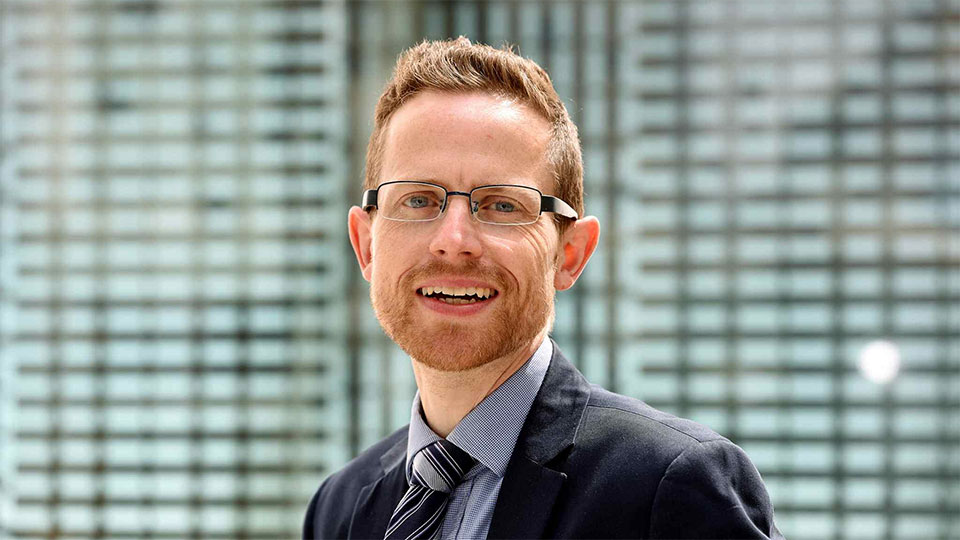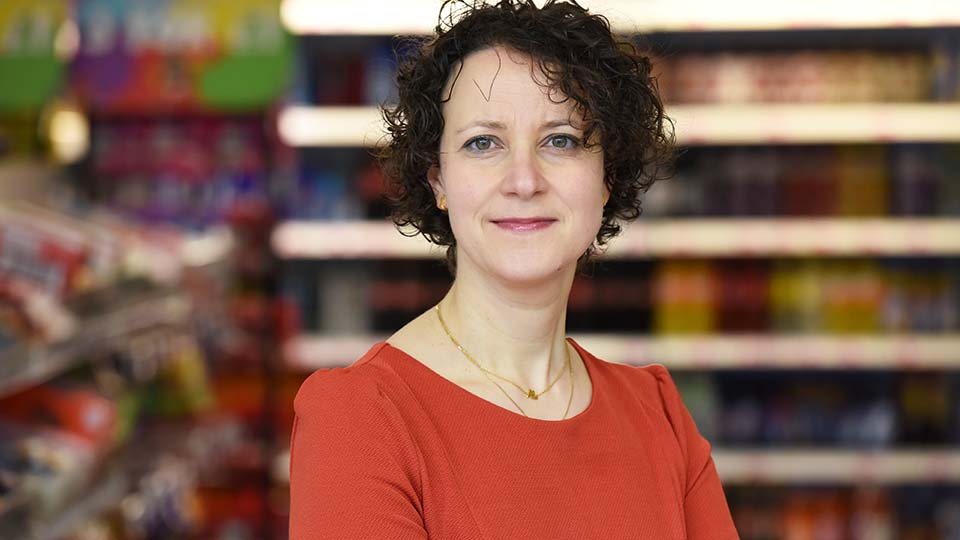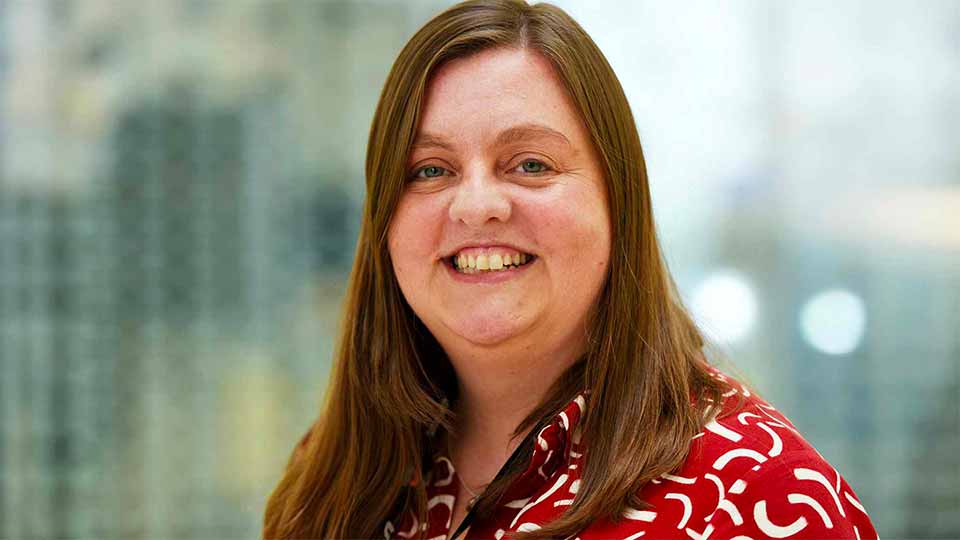Upcoming events
Each lecture is free and open to staff, students and members of the public.
Past events
Land-based solutions and policy pathways for net zero
Professor Diana Feliciano
Land use, and its change and management, are the main drivers of global environmental change, especially greenhouse gas (GHG) emissions that contribute to climate change.
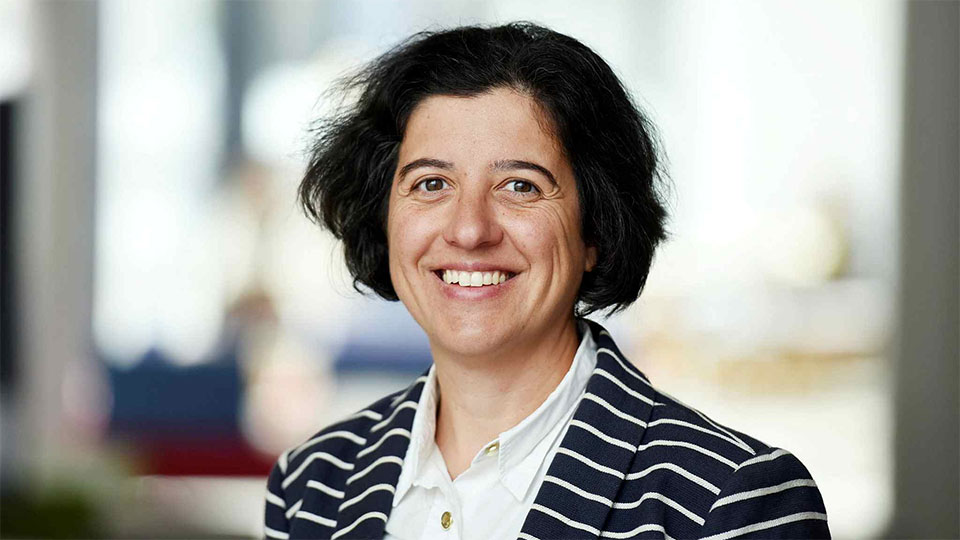
At the same time, climate change-related events are already impacting negatively on land uses such as agriculture and forestry, limiting their capacity to provide goods and services to society, and vulnerable communities whose livelihoods depend on these uses.
With the UK committed to achieving net zero emissions by 2050, great transformation has to take place in all sectors of the economy, particularly the land use sector which is expected to play a major role in achieving the net zero target.
This includes the reduction of direct GHG emissions mainly from agriculture and degraded peatlands, carbon sequestration to counteract emissions from other sectors that are hard to reduce, and the decarbonisation of other sectors of the economy - for example, wood products used in construction.
Farmers and forest owners are key stakeholders as they manage their land with the objective of producing private goods such as food and wood but depending on their management, they can also deliver carbon sequestration and storage.
In this seminar I will talk about the barriers and opportunities for the land use sector to contribute to net zero, alternative policy pathways, and the need to ensure that the required transformation is equitable for people in the UK and around the world.
Biography
Land use, and its change and management, are the main drivers of global environmental change, especially greenhouse gas (GHG) emissions that contribute to climate change.
At the same time, climate change-related events are already impacting negatively on land uses such as agriculture and forestry, limiting their capacity to provide goods and services to society, and vulnerable communities whose livelihoods depend on these uses.
With the UK committed to achieving net zero emissions by 2050, great transformation has to take place in all sectors of the economy, particularly the land use sector which is expected to play a major role in achieving the net zero target.
This includes the reduction of direct GHG emissions mainly from agriculture and degraded peatlands, carbon sequestration to counteract emissions from other sectors that are hard to reduce, and the decarbonisation of other sectors of the economy - for example, wood products used in construction.
Farmers and forest owners are key stakeholders as they manage their land with the objective of producing private goods such as food and wood but depending on their management, they can also deliver carbon sequestration and storage.
In this seminar I will talk about the barriers and opportunities for the land use sector to contribute to net zero, alternative policy pathways, and the need to ensure that the required transformation is equitable for people in the UK and around the world.
Advocacy and the Vulnerable: A sea change in practice
Professor Jacqueline Wheatcroft
Jacqueline joined Teesside University in 2022 and has research interests which broadly surround the enhancement of information, intelligence and evidence in forensic contexts.
Her particular focus is on the effects of process, procedure and questioning techniques on the information people give. Jacqueline is a national and internationally recognised Chartered Psychologist and Registered Forensic Psychologist who has significant conference, journal and text publications. She has also been invited to venues across the world to deliver keynote speeches about her research, a number of which have relevance to her talk. Jacqueline has received funding for projects from a variety of sources, including UKRI, Foreign and Commonwealth Development Office, and the Ministry of Defence, amongst others. She has pioneered the development of a witness interview protocol which has been used in investigations, post incident management, and by United Nations experts.
Her work has made an applied contribution to guiding the ways in which children and vulnerable witnesses are examined in the court process. Jacqueline works across disciplines and her contributions have broken new ground in respect of cross-examination techniques. In this respect, Jacqueline will introduce a potted history of the context in which persons, including those who are vulnerable, negotiate the courts. The talk will emphasise progress in the examination of witnesses, particularly in respect of cross-examination, and draw upon how interdisciplinary research, including Jacqueline’s, has made a valuable contribution to change in legal procedure. Jacqueline will draw on some of her own work to discuss the challenges courts face in obtaining best information as evidence and how the interface between research evidence and practice is important in helping us to think about future directions in the area. Her vision is that all witnesses and interviewees can be supported to give of their best evidence, in investigations, interviews and judicial settings worldwide.
Biography
Jacqueline joined Teesside University in 2022 and has research interests which broadly surround the enhancement of information, intelligence and evidence in forensic contexts. Her particular focus is on the effects of process, procedure and questioning techniques on the information people give. Jacqueline is a national and internationally recognised Chartered Psychologist and Registered Forensic Psychologist who has significant conference, journal and text publications. She has also been invited to venues across the world to deliver keynote speeches about her research, a number of which have relevance to her talk. Jacqueline has received funding for projects from a variety of sources, including UKRI, Foreign and Commonwealth Development Office, and the Ministry of Defence, amongst others. She has pioneered the development of a witness interview protocol which has been used in investigations, post incident management, and by United Nations experts.
Her work has made an applied contribution to guiding the ways in which children and vulnerable witnesses are examined in the court process. Jacqueline works across disciplines and her contributions have broken new ground in respect of cross-examination techniques. In this respect, Jacqueline will introduce a potted history of the context in which persons, including those who are vulnerable, negotiate the courts. The talk will emphasise progress in the examination of witnesses, particularly in respect of cross-examination, and draw upon how interdisciplinary research, including Jacqueline’s, has made a valuable contribution to change in legal procedure. Jacqueline will draw on some of her own work to discuss the challenges courts face in obtaining best information as evidence and how the interface between research evidence and practice is important in helping us to think about future directions in the area. Her vision is that all witnesses and interviewees can be supported to give of their best evidence, in investigations, interviews and judicial settings worldwide.
Making sense with antisense
Professor Linda Popplewell
Rare diseases are defined as those which affect less than one in 2,000 people. Since there are more than 7,000 different rare diseases, statistically this means one in seventeen people will develop a rare disease. Virtually all rare diseases are caused by gene mutations that are either inherited or arise spontaneously, are generally progressive in nature and become life-limiting and life-threatening.
Treatments, if available, focus on targeting the symptoms of the disease rather than the cause and are often associated with toxic side effects with prolonged repeat dosing. The development of specific therapies directed to addressing the disease mutation itself would potentially improve clinical outcomes.
My research has focused on the application of three technologies, namely gene replacement, genome editing and RNA interference, to the development of gene therapies for various rare diseases. In particular, we have exploited the process of antisense oligonucleotide (AO)-induced exon skipping for the muscle wasting condition Duchenne muscular dystrophy (DMD) and neurofibromatosis type 1 (NF1), a disease that results in nerve tumours. These two diseases are caused by a wide range of mutations that result in loss of dystrophin, a muscle stabiliser, in DMD, and the tumour suppressor neurofibromin in NF1. Certain mutation subsets in both diseases cause disruption of the RNA reading frame so that, rather than being translated into protein, the mutated RNA undergoes degradation and disease ensues. AOs can be designed to mask exons, the coding part of a gene, so that they are spliced out during the maturation of the RNA restoring the reading frame so that shortened but functional protein is expressed.
The preclinical work up of the AOs involves using in silico design tools to interrogate the sequences to be targeted, with experimental comparative analyses of exon skipping efficacy to restore protein expression and function in patient cells followed by confirmation of activity in other relevant models. The development of AOs for NF1 are now at the model testing stage, while some of the AOs for DMD we have developed are now being clinically trialled. One of these AOs, with applicability to 15% of DMD patients, is now a conditionally FDA approved medicine. After three years of treatment, this AO gives a highly significant increase in dystrophin protein expression which protects muscle against turnover. Treated patients, when compared to untreated age-matched patients, have improved walking ability, have a decreased loss in ambulation and a lower decline in respiratory function. This highlights the power of AOs to make sense of unreadable RNA and provide hope to patients with particular rare disease mutations.
Biography
Rare diseases are defined as those which affect less than one in 2,000 people. Since there are more than 7,000 different rare diseases, statistically this means one in seventeen people will develop a rare disease. Virtually all rare diseases are caused by gene mutations that are either inherited or arise spontaneously, are generally progressive in nature and become life-limiting and life-threatening. Treatments, if available, focus on targeting the symptoms of the disease rather than the cause and are often associated with toxic side effects with prolonged repeat dosing. The development of specific therapies directed to addressing the disease mutation itself would potentially improve clinical outcomes.
My research has focused on the application of three technologies, namely gene replacement, genome editing and RNA interference, to the development of gene therapies for various rare diseases. In particular, we have exploited the process of antisense oligonucleotide (AO)-induced exon skipping for the muscle wasting condition Duchenne muscular dystrophy (DMD) and neurofibromatosis type 1 (NF1), a disease that results in nerve tumours. These two diseases are caused by a wide range of mutations that result in loss of dystrophin, a muscle stabiliser, in DMD, and the tumour suppressor neurofibromin in NF1. Certain mutation subsets in both diseases cause disruption of the RNA reading frame so that, rather than being translated into protein, the mutated RNA undergoes degradation and disease ensues. AOs can be designed to mask exons, the coding part of a gene, so that they are spliced out during the maturation of the RNA restoring the reading frame so that shortened but functional protein is expressed.
The preclinical work up of the AOs involves using in silico design tools to interrogate the sequences to be targeted, with experimental comparative analyses of exon skipping efficacy to restore protein expression and function in patient cells followed by confirmation of activity in other relevant models. The development of AOs for NF1 are now at the model testing stage, while some of the AOs for DMD we have developed are now being clinically trialled. One of these AOs, with applicability to 15% of DMD patients, is now a conditionally FDA approved medicine. After three years of treatment, this AO gives a highly significant increase in dystrophin protein expression which protects muscle against turnover. Treated patients, when compared to untreated age-matched patients, have improved walking ability, have a decreased loss in ambulation and a lower decline in respiratory function. This highlights the power of AOs to make sense of unreadable RNA and provide hope to patients with particular rare disease mutations.
Challenges for Bioinformatics in Genomic Era
Professor Xinzhong Li
Genomics is playing an increasingly important role in biomedical research, especially in personalized medicine, where advances in biotechnology have made the generation of biological data easier and cheaper. Massive biological data pose great challenges to bioinformatics and computational biologists in data analysis and interpretation
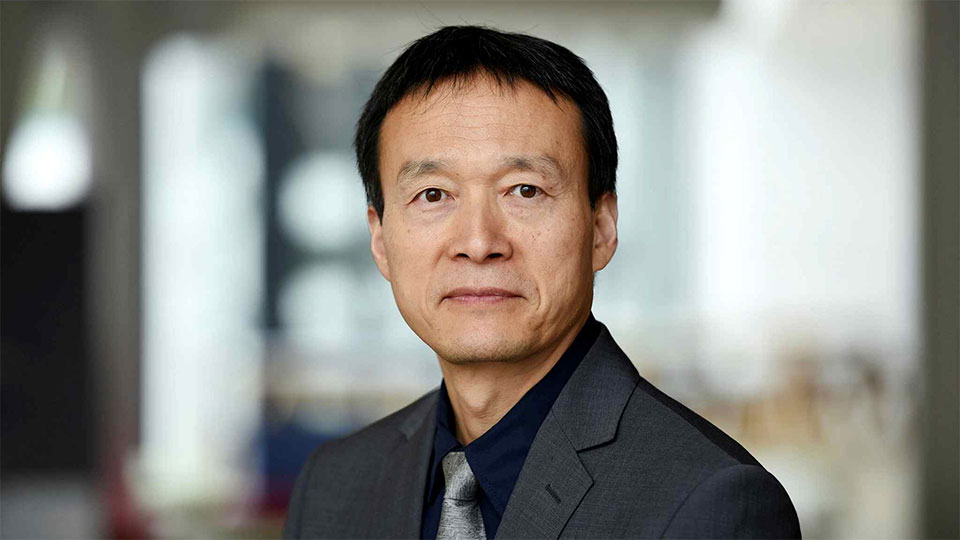
In this talk, we will discuss some of the challenges and state-of-the-art techniques including machine learning, applied to the study of human brain disorders
Preventing Child Sexual Abuse: Do we really use a Public Health approach?
Professor Nadia Wager
Following an extensive mapping exercise, exploring how all the current activities that are embarked upon to prevent child sexual abuse (CSA) fit with a public health approach to prevention, a new model of CSA prevention is proposed, and radical recommendations are made for a national strategic approach to CSA prevention.
Professorial lecture by Professor Nadia Wager
Following an extensive mapping exercise, exploring how all the current activities that are embarked upon to prevent child sexual abuse (CSA) fit with a public health approach to prevention, a new model of CSA prevention is proposed, and radical recommendations are made for a national strategic approach to CSA prevention.
The mapping exercise entailed identifying all CSA prevention initiatives, policies and practices in England and Wales. Then classifying each of these in terms of the level of prevention and which of the socioecological spheres they target, their empirical and/or theoretical basis and the evidence of their efficacy to prevent CSA. This exercise identified that the most resource intensive, nationally developed and managed, and government-funded interventions focus on convicted CSA offenders at the tertiary level of prevention.
That is, they attempt to prevent recidivism in a very small minority of CSA offenders who are estimated to perpetrate just 5% of all CSA crimes annually. Currently there is no primary universal intervention to prevent the onset of CSA offending, which is partly attributed to the paucity of empirical research on undetected offenders and children who have engaged in harmful sexual behaviour.
The schools-based, child-focused programmes, which until recently had not been policy mandated, offer the only primary universal solution to CSA. Although, this approach can also be criticised on a number of grounds, including; inadvertently portraying children as agents who hold power to prevent perpetrators from offending, creating precarious contexts for disclosures of CSA and the lack of evidence of their effectiveness. Indeed, my review of systematic reviews of evaluations conducted largely in the USA suggests that the efficacy of child-focused, schools-based interventions is largely confined to changes in children’s CSA-related knowledge and their anticipated use of self-protective behaviours in the short-term.
Consequently, a new model of CSA prevention is proped, referred to as the CSA Prevention Universe, that identifies who and what to target in preventative interventions, and offer suggestions for a robust CSA prevention strategy, highlights new avenues for research and ways of collaborating to conduct rigorous evaluations of existing interventions.
Biography
Following an extensive mapping exercise, exploring how all the current activities that are embarked upon to prevent child sexual abuse (CSA) fit with a public health approach to prevention, a new model of CSA prevention is proposed, and radical recommendations are made for a national strategic approach to CSA prevention. The mapping exercise entailed identifying all CSA prevention initiatives, policies and practices in England and Wales. Then classifying each of these in terms of the level of prevention and which of the socioecological spheres they target, their empirical and/or theoretical basis and the evidence of their efficacy to prevent CSA. This exercise identified that the most resource intensive, nationally developed and managed, and government-funded interventions focus on convicted CSA offenders at the tertiary level of prevention. That is, they attempt to prevent recidivism in a very small minority of CSA offenders who are estimated to perpetrate just 5% of all CSA crimes annually. Currently there is no primary universal intervention to prevent the onset of CSA offending, which is partly attributed to the paucity of empirical research on undetected offenders and children who have engaged in harmful sexual behaviour. The schools-based, child-focused programmes, which until recently had not been policy mandated, offer the only primary universal solution to CSA. Although, this approach can also be criticised on a number of grounds, including; inadvertently portraying children as agents who hold power to prevent perpetrators from offending, creating precarious contexts for disclosures of CSA and the lack of evidence of their effectiveness. Indeed, my review of systematic reviews of evaluations conducted largely in the USA suggests that the efficacy of child-focused, schools-based interventions is largely confined to changes in children’s CSA-related knowledge and their anticipated use of self-protective behaviours in the short-term. Consequently, a new model of CSA prevention is proped, referred to as the CSA Prevention Universe, that identifies who and what to target in preventative interventions, and offer suggestions for a robust CSA prevention strategy, highlights new avenues for research and ways of collaborating to conduct rigorous evaluations of existing interventions.
Who are our university leaders?
Professor Sarah Aiston
Vice Chancellors, Presidents or Rectors occupy elite public positions in universities. A cursory glance at the roll call of names across the top 100 universities reveals the dominance of men: only 25% of women hold this position (Times Higher Education World University Rankings, 2023).
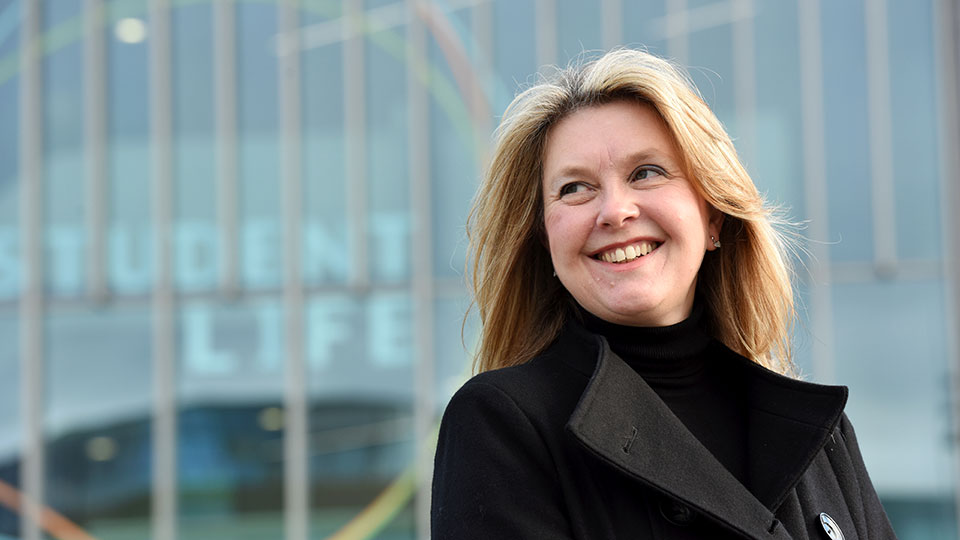
Vice Chancellors, Presidents or Rectors occupy elite public positions in universities. A cursory glance at the roll call of names across the top 100 universities reveals the dominance of men: only 25% of women hold this position (Times Higher Education World University Rankings, 2023). This inaugural lecture aims to reflect upon who is included, and who is therefore excluded, from senior leadership roles in the 21st-century academy.
Drawing upon Puwar's (2004) analysis of how certain bodies are naturally entitled to certain spaces, whilst others are not, Professor Aiston will consider the profiles of our leaders, including those who lead the world's most elite institutions globally.
Emergence of collective behaviours: From human altruism to AI existential risks
Professor The Anh Han
The mechanisms of emergence and evolution of collective behaviours in evolving systems of multiple interacting agents, be they robots, humans, or even human teams, have been undergoing mathematical study via evolutionary and behavioural modelling methods.
The mechanisms of emergence and evolution of collective behaviours in evolving systems of multiple interacting agents, be they robots, humans, or even human teams, have been undergoing mathematical study via evolutionary and behavioural modelling methods. Their systematic study also resorts to agent-based modelling and simulation techniques, thus enabling the study of aforesaid mechanisms under a variety of conditions, parameters, and alternative virtual games.
Numerous important and challenging questions faced by several disciplines and societies have been addressed, such as: what are the mechanisms underlying the evolution of cooperative behaviour at various levels of organisation (from genes to human society)? How to mitigate existential risks such as those posed by climate change or advanced Artificial Intelligence technologies? What are the roles of cognition and emotions in behavioural evolution?
In this lecture, I will discuss these collective behaviour research issues, including results and prospects, which are accruing in importance for the modelling of minds with machines and the engineering of prosocial behaviours in both real-world and artificial life systems. The lecture will cover a range of issues from the introduction of cognitive and emotional mechanisms into agents' implementation in an evolving population, to the design of cost-efficient incentives for promoting prosocial behaviours in complex networks, and to the regulation and governance of AI safety development ecology
Biography
The mechanisms of emergence and evolution of collective behaviours in evolving systems of multiple interacting agents, be they robots, humans, or even human teams, have been undergoing mathematical study via evolutionary and behavioural modelling methods. Their systematic study also resorts to agent-based modelling and simulation techniques, thus enabling the study of aforesaid mechanisms under a variety of conditions, parameters, and alternative virtual games.
Numerous important and challenging questions faced by several disciplines and societies have been addressed, such as: what are the mechanisms underlying the evolution of cooperative behaviour at various levels of organisation (from genes to human society)? How to mitigate existential risks such as those posed by climate change or advanced Artificial Intelligence technologies? What are the roles of cognition and emotions in behavioural evolution?
In this lecture, I will discuss these collective behaviour research issues, including results and prospects, which are accruing in importance for the modelling of minds with machines and the engineering of prosocial behaviours in both real-world and artificial life systems. The lecture will cover a range of issues from the introduction of cognitive and emotional mechanisms into agents' implementation in an evolving population, to the design of cost-efficient incentives for promoting prosocial behaviours in complex networks, and to the regulation and governance of AI safety development ecology
Industry 4.0 Paradigm for Building Design & Construction
Professor Farzad Rahimian
This lecture provides results and case studies in innovation from actual work undertaken in collaboration with industry partners in Architecture, Engineering, and Construction (AEC).
This lecture provides results and case studies in innovation from actual work undertaken in collaboration with industry partners in Architecture, Engineering, and Construction (AEC). Scientific advances and innovative technologies in the sector are key to shaping the changes emerging as a result of Industry 4.0. Mainstream Building Information Management (BIM) is seen as a vehicle for addressing issues such as industry fragmentation, value-driven solutions, decision-making, client engagement, and design/process flow; however, advanced simulation, computer vision, Internet of Things (IoT), blockchain, machine learning, deep learning, and linked data all provide immense opportunities for dealing with these challenges and can provide evidenced-based innovative solutions not seen before. These technologies are perceived as the “true” enablers of future practice, but only recently has the AEC sector recognised terms such as “golden key” and “golden thread” as part of BIM processes and workflows.
This lecture builds on the success of a number of initiatives and projects by the authors, which include seminal findings from the literature, research and development, and practice-based solutions produced for industry. It presents these findings through real projects and case studies developed by the authors and reports on how these technologies made a real-world impact.
The contents are developed around these overarching themes:
• BIM and AEC Design and Optimisation: Application of Artificial Intelligence in Design
• BIM and XR as Advanced Visualisation and Simulation Tools
• Design Informatics and Advancements in BIM Authoring
• Green Building Assessment: Emerging Design Support Tools
• Computer Vision and Image Processing for Expediting Project Management and Operations
• Blockchain, Big Data, and IoT for Facilitated Project Management
• BIM Strategies and Leveraged Solutions
This lecture is a timely and relevant synthesis of a number of cogent subjects underpinning the paradigm shift needed for the AEC industry and is essential reading for all involved in the sector.
Take a deep breath and find your balance
Professor Samantha Harrison
If we lived to be 200 years old we would all develop lung disease. In people with chronic obstructive pulmonary disease (COPD) the natural process of aging is accelerated meaning lung function declines at a faster rate and symptoms of breathlessness become prominent.
If we lived to be 200 years old we would all develop lung disease. In people with chronic obstructive pulmonary disease (COPD) the natural process of aging is accelerated meaning lung function declines at a faster rate and symptoms of breathlessness become prominent. Most of us can recall a time when we have felt out of breath, perhaps during a bad cold or after strenuous exercise. People with COPD feel acutely breathless during everyday activities such as climbing the stairs and dressing. Another consequence of getting older is that we become more prone to falls. A third of healthy adults aged 65 years and older will fall at least once a year and this increases four-fold in people who have COPD because they have worse balance.
In this lecture I will explain why balance is worse in people with COPD, considering not only the physical reasons (e.g. muscle weakness) but also the social and environmental factors that are particularly relevant when living in an area of the UK with high levels of social deprivation. I will present evidence that balance-specific training, delivered alongside an existing health service, is beneficial at improving balance in people with COPD and reducing falls risk. Finally, I will consider how balance training in the future might be aligned with functional activities that are socially and culturally relevant, such as dance and walking football.
Aging is inevitable, it just happens quicker in people with COPD, and we can all benefit from balance training. You might recall a news article published in 2022 quoting a study that found people who could not stand on one leg for 10 seconds were twice as likely to die in the next 10 years. By training balance, we are training our brain and other systems that means we stand a better chance at living longer, maybe not until we are 200 years old, but a longer and healthier life.
Biography
If we lived to be 200 years old we would all develop lung disease. In people with chronic obstructive pulmonary disease (COPD) the natural process of aging is accelerated meaning lung function declines at a faster rate and symptoms of breathlessness become prominent. Most of us can recall a time when we have felt out of breath, perhaps during a bad cold or after strenuous exercise. People with COPD feel acutely breathless during everyday activities such as climbing the stairs and dressing. Another consequence of getting older is that we become more prone to falls. A third of healthy adults aged 65 years and older will fall at least once a year and this increases four-fold in people who have COPD because they have worse balance.
In this lecture Professor Samantha Harrison explains why balance is worse in people with COPD, considering not only the physical reasons (e.g. muscle weakness) but also the social and environmental factors that are particularly relevant when living in an area of the UK with high levels of social deprivation. Presenting evidence that balance-specific training, delivered alongside an existing health service, is beneficial at improving balance in people with COPD and reducing falls risk. It considers how balance training in the future might be aligned with functional activities that are socially and culturally relevant, such as dance and walking football.
Aging is inevitable, it just happens quicker in people with COPD, and we can all benefit from balance training. You might recall a news article published in 2022 quoting a study that found people who could not stand on one leg for 10 seconds were twice as likely to die in the next 10 years. By training balance, we are training our brain and other systems that means we stand a better chance at living longer, maybe not until we are 200 years old, but a longer and healthier life.
Where the wild things are
Professor Sarah Perks
Our ever-complex world is following the pursuit of solutions at an ever-alarming rate, an apocalyptic countdown fuelled by media, technology and politics. Curating is a burgeoning field of practice and theory that has been significantly expanding from a care of objects to a care for people, and beyond this, for all life on the planet.
Our ever-complex world is following the pursuit of solutions at an ever-alarming rate, an apocalyptic countdown fuelled by media, technology and politics. Curating is a burgeoning field of practice and theory that has been significantly expanding from a care of objects to a care for people, and beyond this, for all life on the planet. Professor Sarah Perks discusses how curating is offering creativity, exploration and experimentation: different ways to approach our interdisciplinary futures.
Biography
Our ever-complex world is following the pursuit of solutions at an ever alarming rate, an apocalyptic countdown fuelled by media, technology and politics. Curating is a burgeoning field of practice and theory that has been significantly expanding from a care of objects to a care for people, and beyond this, for all life on the planet. Professor Sarah Perks discussed how curating is offering creativity, exploration and experimentation: different ways to approach our interdisciplinary futures.
Acoustics of Resistance
Professor Mikhail Karikis
In his lecture Prof Mikhail Karikis utilises field recordings, moving image and academic writing to reflect on climate change, protest, intergenerational justice and ‘unspeakable hope’, and proposes listening and the practice of attunement as forms of care, responsibility and activism.
In his lecture Prof Mikhail Karikis utilises field recordings, moving image and academic writing to reflect on climate change, protest, intergenerational justice and ‘unspeakable hope’, and proposes listening and the practice of attunement as forms of care, responsibility and activism.
Biography
In his lecture Prof Mikhail Karikis utilised field recordings, moving image and academic writing to reflect on climate change, protest, intergenerational justice and ‘unspeakable hope’, and proposes listening and the practice of attunement as forms of care, responsibility and activism.
Public criminology, elite occupations, and the social ethics and etiquette of publicly professing one’s vocation
Professor Marty Chamberlain
Professor Chamberlain is an internationally regarded social scientist whose research has focussed on professional regulatory tribunal hearings, particularly when these intersect with the formal justice system when members of elite occupations like medicine commit a criminal act.
In his professorial lecture, he discusses his work over the last twenty-five years exploring the role played by public criminology and medical sociology in critically interrogating the ‘social etiquette’ which surrounds the concept of professionalism when mistakes, errors of judgement and deliberate acts of malpractice occur.
Biography
Professor Chamberlain is an internationally regarded social scientist whose research has focussed on professional regulatory tribunal hearings, particularly when these intersect with the formal justice system when members of elite occupations like medicine commit a criminal act. In his professorial lecture, he discusses his work over the last twenty-five years exploring the role played by public criminology and medical sociology in critically interrogating the ‘social etiquette’ which surrounds the concept of professionalism when mistakes, errors of judgement and deliberate acts of malpractice occur.
How does disability interact with mainstream culture?
Professor Simon McKeown
Professor Simon McKeown's research considers how disability interacts with mainstream culture. It seeks to expose and invert negative tropes on impairment, to culturally position disabled people, including learning disabled adults centre stage through often large-scale collaboratively developed public art events.
Professor Simon McKeown's research considers how disability interacts with mainstream culture. It seeks to expose and invert negative tropes on impairment, to culturally position disabled people, including learning disabled adults centre stage through often large-scale collaboratively developed public art events.
Further, the research considers historical disability narratives centred around cultural and political developments which led to the design of often dangerous mobility vehicles for impaired users, as provided over seventy years by the UK Government, latterly through the NHS until 1975.
There is another element to my research, which covers technology and our digital futures. This research considers how we may be able to interact in the future with technology, such as touchable holograms and big data, to digital extend lives and our ongoing connections with deceased family members.
Biography
Professor Simon McKeown's research considers how disability interacts with mainstream culture. It seeks to expose and invert negative tropes on impairment, to culturally position disabled people, including learning disabled adults centre stage through often large-scale collaboratively developed public art events.
Further, the research considers historical disability narratives centred around cultural and political developments which led to the design of often dangerous mobility vehicles for impaired users, as provided over seventy years by the UK Government, latterly through the NHS until 1975.
There is another element to Professor McKeown’s research, which covers technology and digital futures. This research considers how we may be able to interact in the future with technology, such as touchable holograms and big data, to digital extend lives and our ongoing connections with deceased family members.
A just transition to net zero in the Northeast of England
Professor Matthew Cotton
Teesside has become a hub for innovation in low carbon technology and industrial development, including offshore wind energy, hydrogen, and carbon capture, utilisation and storage (CCUS) projects.
Teesside has become a hub for innovation in low carbon technology and industrial development, including offshore wind energy, hydrogen, and carbon capture, utilisation and storage (CCUS) projects. These promise economic growth to the region whilst progressing the global 'net zero' greenhouse gas emissions agenda to aid the fight against climate change. The revitalisation of Tees Valley industry through low carbon innovation is an example of a transition pathway, in which high-carbon intensity sectors (such as steel manufacture) are replaced with low-carbon intensity sectors. As a social scientist, I am interested in the political and social dynamics of this change. I discuss the concept of a just transition: how principles of fairness, equality and justice can be placed at the heart of this rapid transition planning. In this lecture I blend research in philosophy, innovation studies and public policy to assess how the benefits and risks of a net zero transition can aid socio-economic and cultural growth within the Tees Valley region and beyond.
Biography
Matthew Cotton joined Teesside University as Professor of Public Policy in the School of Social Sciences, Humanities and Law in July 2020. He joined Teesside from the Department of Environment and Geography at York University and held previous lecturing positions in Urban Studies and Planning at Sheffield, Sustainability Studies at Leeds, and postdoctoral fellowships at Exeter and Manchester. He is a fellow of the Royal Geographical Society and visiting fellow in the Centre of the American West at the University of Colorado Boulder.
Matthew’s research, teaching and public outreach work lies in the study of social and environmental justice - how environmental change affects community wellbeing now and into the future, and how citizens can become actively involved in political decisions about technology, biodiversity, and climate change. He has published five books and more than fifty research papers on a diverse range of environmental issues including the development of electricity systems, burying nuclear waste, shale gas fracking and reducing the plastic in the oceans. Today he will discuss how investment in the Northeast of England to meet Government targets on Net Zero greenhouse gas emissions can stimulate economic growth and provide a fair and just sustainable transition for the people of the Northeast of England.
No longer behind closed doors: breaking taboos and innovating diagnosis of urinary diseases
Professor John S. Young
As we age, we expect our hair to turn grey, and for us to lose some or all of our bladder function. It’s a sobering thought that a loss of bladder function might ultimately limit what we do.
As we age, we expect our hair to turn grey, and for us to lose some or all of our bladder function. It’s a sobering thought that a loss of bladder function might ultimately limit what we do. In this lecture, John will explain how a loss of bladder function impacts individuals, our healthcare system and wider society - and, crucially, what we can do about it. Many people do not seek timely help at a point when symptoms can be treated, as symptoms are initially mild and there remains the incorrect belief that symptoms are simply part of growing old. John will discuss education projects for patients and their carers that provide accessible information about conditions, treatments, and encourage conversations to break the taboo. He’ll explain how modern medicine isn’t geared up to treat the older adult, living with many different diseases and conditions - and work to address this through national programmes for NHS employees and care home staff. Finally, he’ll explain that we know very little about how the bladder changes as we age and how, bizarrely, diseases that cause urinary symptoms are difficult to diagnose. In fact, current methods are inaccurate, invasive and expensive. As poor diagnosis means treatment that is either inappropriate or comes too late, many people find themselves stuck with urinary symptoms for decades. John will talk about new methods that are able to diagnose bladder disease earlier, more accurately and from a patient’s urine. With early diagnosis and appropriate treatment, maybe all we’ll have to worry about are the grey hairs.
Biography
As we age, we expect our hair to turn grey, and for us to lose some or all of our bladder function. It’s a sobering thought that a loss of bladder function might ultimately limit what we do. In this lecture, John explains how a loss of bladder function impacts individuals, our healthcare system and wider society - and, crucially, what we can do about it.
Many people do not seek timely help at a point when symptoms can be treated, as symptoms are initially mild and there remains the incorrect belief that symptoms are simply part of growing old. John discusses education projects for patients and their carers that provide accessible information about conditions, treatments, and encourage conversations to break the taboo. He explains how modern medicine isn’t geared up to treat the older adult, living with many different diseases and conditions - and work to address this through national programmes for NHS employees and care home staff.
Finally, he explains that we know very little about how the bladder changes as we age and how, bizarrely, diseases that cause urinary symptoms are difficult to diagnose. In fact, current methods are inaccurate, invasive and expensive. As poor diagnosis means treatment that is either inappropriate or comes too late, many people find themselves stuck with urinary symptoms for decades. John talks about new methods that are able to diagnose bladder disease earlier, more accurately and from a patient’s urine. With early diagnosis and appropriate treatment, maybe all we’ll have to worry about are the grey hairs.
'I’m Lovin’ it': Challenging the food environment
Professor Amelia Lake
The UK food environment is almost unrecognisable compared with thirty years ago. Alongside this change has been an exponential increase in the prevalence of overweight and obesity. This has stimulated research across the world to explain the relationship between aspects of food retailing, diet and health.
The UK food environment is almost unrecognisable compared with thirty years ago. Alongside this change has been an exponential increase in the prevalence of overweight and obesity. This has stimulated research across the world to explain the relationship between aspects of food retailing, diet and health. Fifteen years ago, Professor Lake began working on a prestigious NIHR Post-doctoral Fellowship that explored the impact of the food environment on our eating behaviours and she continues working in that field today.
Biography
The UK food environment is almost unrecognisable compared with thirty years ago. Alongside this change has been an exponential increase in the prevalence of overweight and obesity. This has stimulated research across the world to explain the relationship between aspects of food retailing, diet and health. Fifteen years ago, Professor Lake began working on a prestigious NIHR Post-doctoral Fellowship that explored the impact of the food environment on our eating behaviours and she continues working in that field today.
The relationship between food choice, dietary habits and the environment is complex. Not least because there are so many factors at play including policy (food policy, planning policy), our human behaviours (likes and dislikes) and the complexities around inequalities and access to food.
Professor Lake continues to challenge and push disciplinary boundaries by working with colleagues from Planning, Public Health, Food Science, Sociology, Business Logistics and Supply Chain experts to explore what is used to help shape the environment into a healthier environment. Her internationally recognised work has influenced policies.
In this lecture, Prof Lake explores the complexities of the food environment, as well as addressing the challenges and opportunities to make healthier diets accessible to all.
Geordie genes and the power of sequencing
Professor Vikki Rand
The Human Genome Project was an international scientific research project involving 20 groups from across the globe with a combined goal of determining the base pairs that make up human DNA.
Importantly the sequence data was made available without restriction and access to this data has revolutionised our approaches to research – and has underpinned Prof Rand’s research career. The sequence of the human genome is a powerful tool which has enabled us to understand human evolution and unravel complex diseases.
In this lecture, Prof Rand discusses how the Human Genome Project and the technical advances that developed from this ambitious project changed the research landscape.
She also shows how her own research has utilised this knowledge to understand different cancers and present how we can exploit weaknesses in cancer DNA to improve treatment and outcome for patients. Professor Rand will describes some of the challenges we face through healthcare disparity in the UK and globally and how she is tackling this at Teesside University.
Biography
Professor Vikki Rand is Professor of Biosciences. Prof Rand obtained her PhD in Genomic and Bioinformatics from the University of Cambridge. Her PhD project was based at the Wellcome Trust Sanger Institute and her research contributed to The Human Genome Project. After her PhD, Vikki conducted two post-doctoral research positions at Johns Hopkins University, USA and the University of Nottingham working in collaboration with St Jude’s Children’s Hospital, USA. Prior to moving to Teesside University she held a prestigious Senior Bennett Fellowship from Blood Cancer UK at Newcastle University where she led a group focussing on improving our knowledge of paediatric lymphoma in the UK and Malawi. Prof Rand’s current research interests include early diagnostics of cancer and levelling up healthcare for children and adults across our region and beyond. Her research uses cutting edge approaches to unravel the biology of aggressive cancers to identify prognostic biomarkers and new therapeutic targets. Vikki has published research in high impact journals including Nature, Nature Genetics, PNAS, Blood, Molecular Cell and Leukemia.
